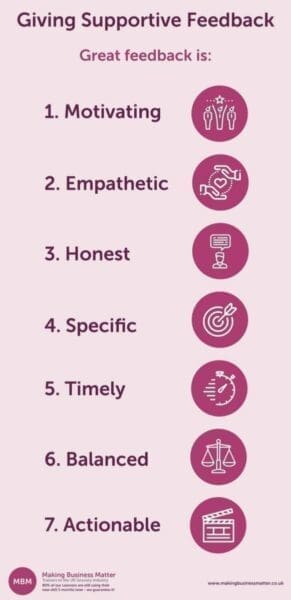How to Maximise Employee Feedback
Employee feedback is the information that staff exchange either in a formal or non-formal capacity about their skills, ability to work in groups, and most importantly their performance. Feedback can be given either by peers or supervisors in an organisation.
Feedback from peers is often assessed to look at the performance of a colleague who is performing similar tasks as you. There are, however, times when the junior management has to provide feedback to the top management. In such a case, the goal would be to look at the suitability of the manager to lead a team. Such an assessment is known as upward feedback. According to a study by Smither, this approach has a positive impact on the performance of corporate managers. But there are instances where the management has to give feedback to the subordinates in the company.
How China Leads the Way
Whether conducting business in China or any other part of the world, employee feedback remains a powerful tool in business. China has some of the leading tech companies across the globe. The secret behind the success of these conglomerates is that they consider employee feedback a critical factor in promoting staff output. If you’re a foreigner starting a business in China, you can partner with a Professional Employer Organisation (PEOs), that can hire China talented employees without setting up a legal entity. What’s even more important is that PEOs ensure employee retention, which is heavily based on employee feedback.
There Are Three Kinds of Employee Feedback
These include:
- Praise Feedback: It involves giving positive attributes about people to boost their confidence, self-esteem as well as their efficacy. Such feedback is always encouraged for people to feel appreciated.
- Criticism Feedback: It has to do with giving negative comments about an employee. This kind of feedback is often avoided in business settings.
- Constructive Feedback: It is based on personal observation of people and is categorised into four types which include negative, positive, positive feedforward, and negative feedforward. Negative feedback tends to caution employees about previous behaviour that was not productive while positive feedback tends to affirm past successful behaviour. Negative feedforward looks into the future and is meant to alert people about mistakes they should avoid. Lastly, positive feedback affirms future behaviour that should be upheld so that the company enhances its performance.

Why is Feedback Important?
Several benefits accrue from gathering employee feedback which includes:
- It helps employees work through their misunderstandings before they turn into a conflict.
- Encourages staff engagement now that each person has to assess the other.
- Enhances work performance because it tends to highlight areas for improvement.
- Promotes employee retention in the workplace.
- Encourages the transfer of professional development.

Sticky Learning ® is 7 times more effective than 1-day training courses. Plus, you will get a Chain of Evidence proving your Return on Investment. Discover soft skills training that changes behaviours long term.

Four Ways in Which Employees Can Effectively Give Feedback:
- Be Sensitive: When giving feedback that sheds light on self-knowledge, it is critical that you show empathy to the party receiving it. Being blunt about it can cause people to have strong emotions that may either lower their self-esteem or discourage them from excelling in their duties. This method calls that you set aside any reservations that you may have about a colleague.
- Be Succinct: Feedback should always be succinct and clear. Giving out vague statements especially when rendering constructive feedback can be counterproductive. Therefore, you ought to give feedback as though you are guiding an employee for it to yield results. Ensure that you do not dwell so much on the negative side. Let your employees know that you value the work they do.
- Do It in Private: Whatever you do, ensure that you never give feedback publicly especially if it is negative. Workers tend to be different and there those that do not like it when people pay too much attention to them. Other than having a meeting with your staff, you could give a response in a written manner. This way, only your employees know the comments you put in there.
- Let Feedback Be Performance-Centred: One of the mistakes that most managers focus on employee personality when giving feedback. Rather than centring your feedback on someone’s attributes, you should emphasise their behaviours which are impacting their performance.
How Do You Make the Most of Employee Feedback?

1. Use Feedback to Handle Grievances
In any workplace, people differ in the way they interpret issues. Therefore, when you are giving feedback, it is best to handle any grievances that your employees may have. Such issues may be the reasons behind the poor performance being exhibited by your employee. Therefore, in the process of deciphering these grievances, keep an open mind, and offer solutions to these problems.
2. Turn the Information You Get to Data
Employee feedback is a source of valuable data. It can help establish why certain aspects of your business are not going as planned. For instance, it can explain why your company is getting a lot of complaints from customers, or even why a project is derailing so much. Therefore, this is a chance for you to collect this data and use it to revamp your organisation.
Employee feedback may guide your future decisions such as how you recruit employees, engage them, and retain workplace diversity as well. Some of the most experienced business professionals will tell you that employee feedback is great when it leads to positive changes.
3. Demand Top-Level Accountability
Employees that are submitting feedback ought to know how to communicate their needs to the senior management. You should let your staff know that you cannot decipher what they are feeling or thinking. Always emphasise that it is their role to express themselves freely. Additionally, your staff should also be a source of solution to whatever concerns that they raise. Taking up this approach is how you demand accountability from your teams.
Final Thoughts
Employee feedback should be part and parcel of every activity in an organisation. As a business leader, you should acknowledge employees’ feelings towards the work they do and the effort they dedicate to it. Additionally, you should pay attention to the attitude that they bear while performing their duties. Such considerations are some of the things that will either level up your company’s productivity or diminish your output.
When seeking employee feedback, you should not be reliant on the engagement surveys or exit interviews. Validating internal and external employee reviews is the way to go. When taking internal reviews, make use of engagement surveys and stay interviews. Lastly, have a professional in engagement surveys take a lead in this process for you to meet the goals that you desire.




